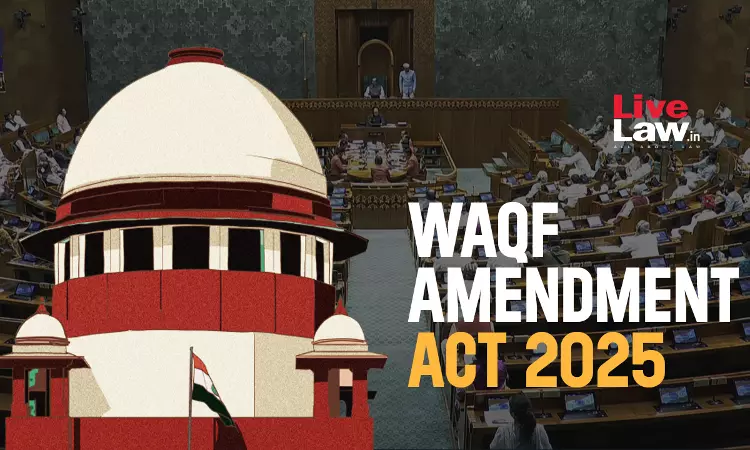Seven States Approach Supreme Court Supporting Waqf Amendment Act 2025
LIVELAW NEWS NETWORK
14 April 2025 8:58 PM IST

Next Story
14 April 2025 8:58 PM IST
Ahead of the hearing of the petitions challenging the Waqf Amendment Act 2025, the States of Assam, Rajasthan, Chhattisgarh, Uttarakhand, Haryana, Gujarat and Maharashtra have filed intervention applications in the Supreme Court supporting the legislation.They have sought to be impleaded in the petition filed by the All India Muslim Personal Law Board and another(WP(c No.284/2025). Rajasthan...
